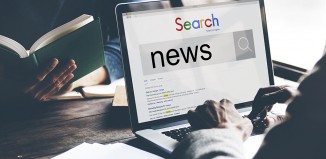Assistive Technology Webinar Thursday, June 11, 2020
Register for the webinar on Thursday, June 11 at 3:00 pm – 4:00 pm ET
Join the Assistive Technology Act Technical Assistance and Training Center (AT3) and the Christopher & Dana Reeve Foundation Paralysis Resource Center (PRC) for a webinar, High Impact Innovative Assistive Technology (HIIAT) Grants 2020, on Thursday, June 11 from 3:00 PM – 4:00 PM ET.
Learn about the PRC’s HIIAT grants program and hear from three past successful HIIAT grant recipients who will provide an overview of their grant-funded projects and accomplishments.
Presenters for the webinar include:
- Mark Bogosian, Director, Quality of Life Grants Program, Christopher & Dana Reeve Foundation
- Jeannie Krull, Program Director; Assistive (ND); The Smart Home First Project
- Brian Norton, Director, Assistive Technology, Easterseals Crossroads (IN); Assistive Technology Mobile Unit
- Sara Sack, Senior Research Scientist, Assistive Technology for Kansans (KS); Accessible Recreation: Playing Electronic Games Independently to Increase Health & Social Connection
ACL administers the State Assistive Technology (AT) Act Program to support programs that increase knowledge about, access to, and acquisition of assistive technology devices and services for people with disabilities and older adults. Each State and Territory AT Program serves individuals with disabilities of all ages through device demonstrations, device loans, device reutilization, training, technical assistance, public awareness, information and referral, and assistance with obtaining funding for assistive technology, including durable medical equipment and home modifications.
The session will be captioned and recorded. Video can be found within a week after the live event at the AT3Center’s YouTube channel.
ACL funds the Paralysis Resource Center to provide comprehensive information for people living with spinal cord injury, paralysis and mobility-related disabilities and their support networks. Resources include information and referral by phone and email in multiple languages including Spanish; a peer and family support mentoring program; a military and veterans program; multicultural outreach services; quality of life grants; and a national website.










